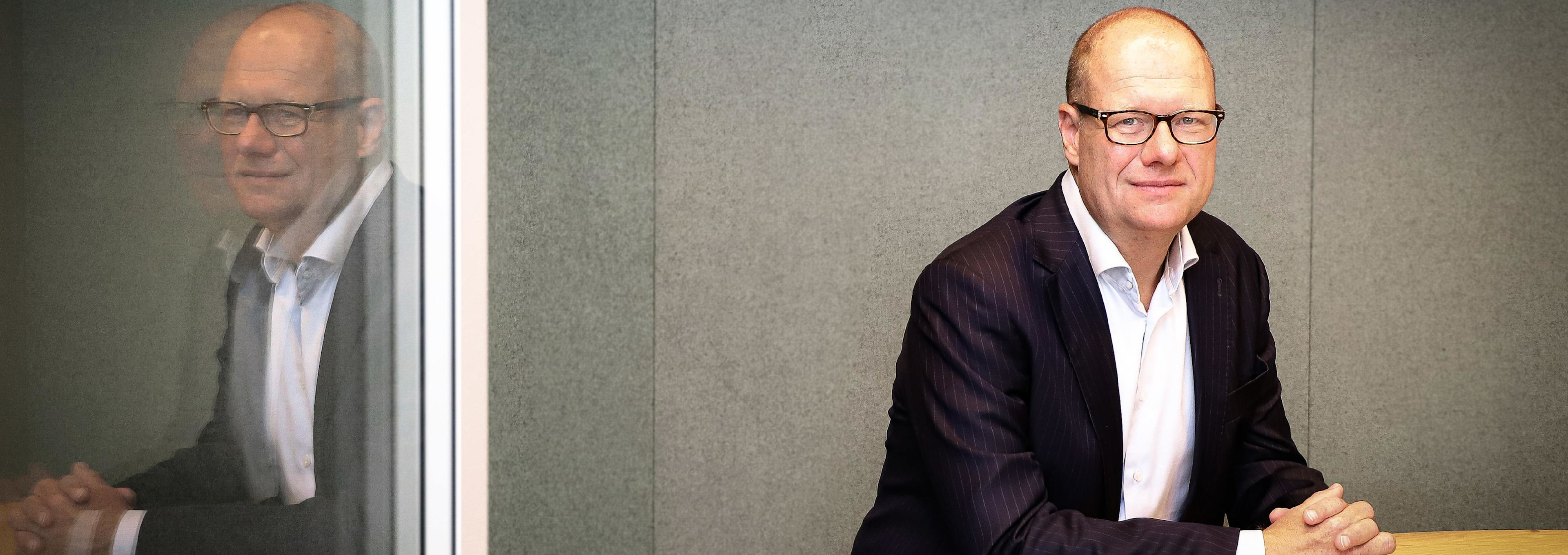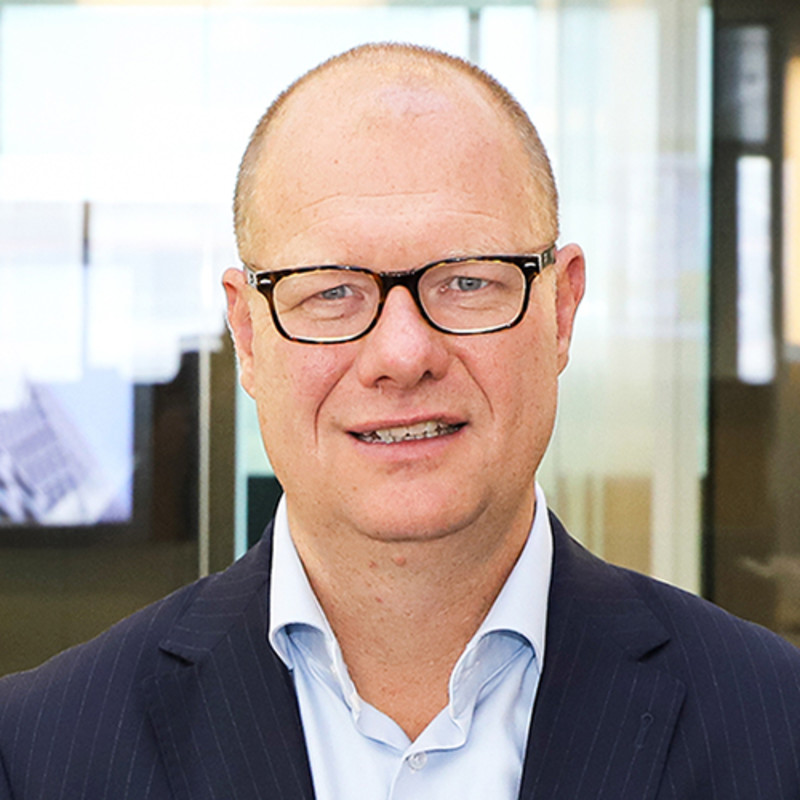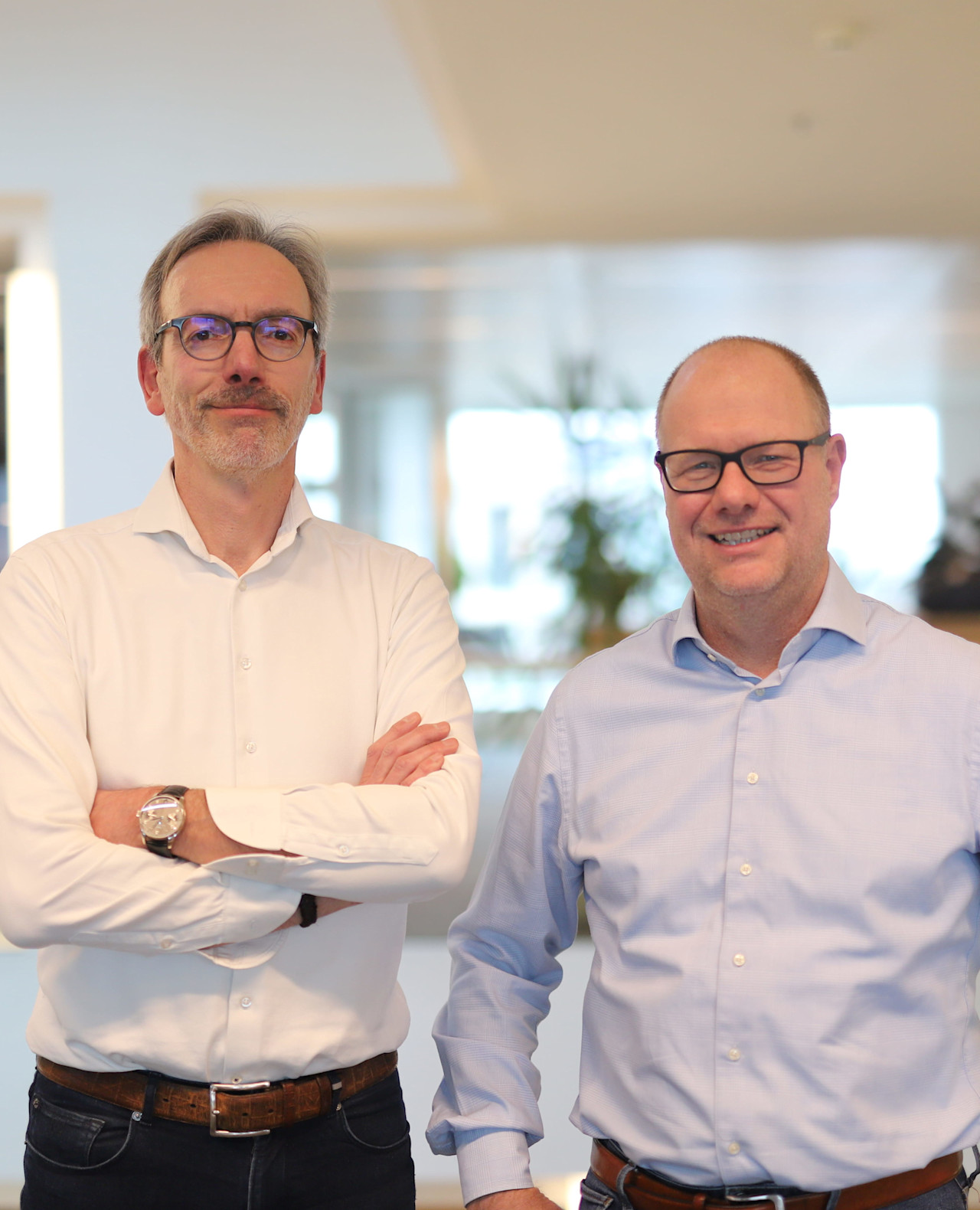

Podcast: The (almost) forgotten art of stock picking
It’s almost unnerving, watching equity-market indices repeatedly touching new all-time highs. Particularly when the gains are founded on a very select group of stocks, while economic indicators are relatively mixed. In such a set-up – we ask portfolio manager Michiel Plakman – what’s the best strategy for managing a market-beating investment portfolio?
This podcast is for professional investors only.
Michiel Plakman (MP): One thing I think is really important: the larger the team that you have, the more important the common language that you speak. And for us, that common language is the investment process. So it needs to be very crisp, it needs to be very clear, so that when you wake up at three at night and you're asked, what's your process like, that you can sort of drum up the three pillars of our process: ROIC, free cash flow, sustainability. I think that's super important.
Erika van der Merwe (EM): It also requires simplicity then.
MP: Yes, all good investment styles are very simple.
EM: It's almost unnerving watching equity market indices repeatedly touching new all-time highs, particularly when the gains are founded on a very select group of stocks, and at a time when economic indicators are relatively mixed. So we ask, in such a setup, what's the best strategy for managing a market-beating investment portfolio? For this, we've invited Michiel Plakman, he's a portfolio manager for Robeco’s Sustainable Global Stars strategy. Welcome, Michiel, really good to have you here.
MP: Thanks, Erika.
EM: So Michiel, you've been doing this for many years. How long have you been an investor?
MP: I've been an investor for close to 30 years. The last 25 years at Robeco, of which the last 15 or so within the global team. So, yeah, I've been around for quite a bit.
EM: Right now, I would imagine it's quite different, although I think at any time we always think these times are different or unique. Right now, what's it like being a global equity investor?
MP: Well, it's actually very good being a global investor, because you can look at different markets, find opportunities, literally around the globe, where some markets clearly are very expensive at the moment. Take the US, for example. But there's really good examples, or really good finds in other areas of the market, in other regions. So being global is actually very comfortable.
EM: And that's the kind of unique, unusual aspect of where we are right now, this narrowness of the market that I referred to. Is it a concern to you that it is this narrow, because you say you can find opportunities elsewhere, but right now this it's such an extreme situation.
MP: It's always a concern, especially because you do have bubble-like characteristics, especially in the AI or artificial intelligence corner of the market. On the other hand, inflation continues to come down. So we are probably very close to the moment where the Fed will start cutting US short-term interest rates, which will probably broaden the market. It will probably give rise to more cyclical value type names. So I think this narrowness also goes in cycles and probably we’re at the peak of the narrowness. And for the market to actually reach new highs, the market needs to broaden out, and so we do expect that to happen.
EM: So you don’t think this narrowness is creating or implies some sort of systemic weakness in the system, that if there were to be a crash, that it would hurt markets in general?
MP: No, I think it would more hurt that very select group of stocks, also because the environment is relatively difficult. You have low or slowing economic growth, you have inflation that has continued to be relatively sticky. So interest rates have been higher for longer, at least significantly higher than people expected at the start of the year. On the other hand, it seems like we're quite close to a turning point, at least in terms of Federal Funds Rate, which I think is very important for the market overall. And where we fear the US and European economies would slide into recession, at the start of the year, we no longer are afraid that that will happen. So we see slower growth, but no recession. And so it likely means inflation comes down further, central banks can act and the market can start to broaden. So all in all that's quite good.
EM: So you're saying all the support systems and mechanisms are in place to, to hold the situation, to make for a reasonable movement forward.
MP: Yes, definitely. And also if you look at the broader markets, so excluding what you may call the Magnificent Seven – although that is also very artificially constructed, right? – the market's actually not that expensive. Also not in the US. The US is also a very broad and very liquid market. So there's always good ideas to be found. And other markets don't strike as particularly expensive; Europe not, China not, Japan still looks quite reasonable. So actually, the market is broad enough.
EM: So you sound sanguine about this, but I also know that you speak to clients almost every day, asset owners across the globe. What are their views right now? Are they concerned about the narrowness of the market or valuations more generally, or are they adopting a conservative approach of remaining passive, for example?
MP: It's always a mix. It depends a bit where clients come from. In general, clients are concerned about the narrowness of the market, because in order to outperform, it's forced fund managers like us to be in the names that have performed. So it feels like a lot of the portfolios, also of our competitors, look very similar. So the key question is always: so what's going to happen next? Where do we need to be to continue to outperform the market? We think we'll see rotation out of those Magnificent Seven into a broader group of stocks, but clearly the choices you make are key.
EM: So on that point: right now you have a team, you know a sizable team with you. You make these decisions. But you are the ultimate decision maker at the end. But are you finding right now that there's more debate perhaps on what to add or when to lighten on some of these stocks?
MP: Yeah, we typically lighten when things get expensive. And we always very closely follow our process, so I would say there's always quite a lot of debate. I don't think that varies. I don't think we have more or less consensus than we normally do. What I think is key now, is when we take profits in some of those Magnificent Seven names, is where to rotate into. And that's probably the biggest source of that debate. We always look for quality. So quality based on ROIC, free cash generation and sustainability profile. And so it's finding those ideas that we think will give us alpha over the next three years.
EM: Let's stop there a moment and elaborate on what you mean by quality. You used the acronym, so just explain what those three elements are.
MP: So for us in our investment process, the three pillars are (1) return on invested capital, so we look for companies that have a good track record of generating invested capital, and we look both at both sides of the equation, so both the NOPAT side, or the operating profit side. And we look at what's needed in terms of invested capital to generate those very high ROICs, so to speak. Then the second element is clearly cash generation. So we don't care so much about earnings or book value, we care a lot about the cash generation and cash generative ability of a company going forward. And of course, we try to buy names at attractive free cash flow yields. So that's the valuation measure we care most about. And the third element is sustainability profile, which to us is increasingly a feature of value and quality. Because we're clearly moving in a society away from just shareholder capital or shareholder management to providing good returns to all stakeholders. And that is clearly of increasing importance.
EM: Is your approach to focus on quality, is that unusual in the market?
MP: No, there's actually quite a lot of managers that focus on quality, but the definition of quality can differ from manager to manager. This is the way we look at quality and as in typical Robeco fashion, we've been working closely with the client services department to actually back-test a lot of the variables that we look at in terms of quality, to see if indeed they generate alpha over time.
EM: Sustainability presumably also has varying definitions, depending on who you are and where you stand. So has that worked out well for you as a methodology with which to select stocks?
MP: Well, what's really important is that sustainability offers a different lens, so to speak. So the information of course, is very different from just the financial information that we take into account. So sustainability adds a lot of color around sort of the financial metrics. It always depends a little on the industry that you look at. Clearly for, let's say, the insurance industry, it will be very different from, what sort of information you look at than let's say in the energy sector. Three elements we always look at in terms of material sustainability information are the product impact, corporate governance and the climate strategy of a company. But clearly, this adds a lot of color around the quality perception of a company just based on financial metrics.
EM: I think it's time for a quiz, Michiel. We've reached that stage in the podcast. I believe that you're a man who likes investment clichés, and I'm surprised we haven't heard any yet. So we know financial markets are jam packed with these cliches, also jargon and myths. So how this is going to work is I've collected a list of some of these investing cliches, and I'm going to call them out. And I want, one by one as we go through them, I want you to tell me if you feel this particular sort of jargon, this line has merit, and possibly if it applies right now in the market. And maybe you even have a personal anecdote relating to that. Are you ready?
EM: Michiel, it's a stock pickers’ market.
MP: It always is. In order to add value in the market, you need to be a bottom-up stock picker and you need to deviate substantially from the benchmark.
EM: I'm cautiously optimistic.
MP: We always are. Investors always are cautiously optimistic, I would say. But I do think there's good reason to still be quite optimistic overall.
EM: The market never moves in a straight line.
MP: No, indeed, it never does. I'm a bit surprised by how strong the market has been. That is clearly also the consequence of just continued flows. On the other hand, I also, in the short term, see no reason why that would change.
EM: The easy money has been made.
MP: That is also always the case. I think it's never easy, what I think, is harder is that in a lot of the technology-driven names that also tend to be quite popular with retail investors, indeed valuations are stretched. So there definitely the easy money has been made, but there's also pockets of the market that are also, by historical comparison, exceptionally cheap. And so I do think there's good opportunity there.
EM: The trend is your friend.
MP: Again always true. But that's also why it's a cliché, right? So stocks tend to have trending behavior, but you should always be careful to not over extrapolate the trends. Stocks have intrinsic value and that you should always keep in mind.
EM: Here's a quote attributed to Keynes. He said the market can stay irrational longer than you can stay solvent.
MP: Yes, and to be frank, I think we've seen a lot of that already. Maybe a cliché of my own: being too early is just as good as being too late. So we've seen people go contrarian on some of the Magnificent Seven names, and that has been really tough position to be in.
EM: In other words, being underweight or selling.
MP: Being under being underweight or betting against particular names on the AI semiconductor side. That has just been incredibly hard, and still I think.
EM: So your team has not been contrarian in this regard? You've maintained exposure to some of these top performers.
MP: Yeah, we've continued to maintain exposure, also because we do feel that a lot is priced in, but we are still in an infrastructure boom, maybe like we've seen at the end of the 90s as well. So in the internet bubble, we've also seen the infrastructure play sort of be the first group to advanced before you saw applications advance, and in that sense, this AI boom is very similar.
EM: Don't fight the fed.
MP: That's an interesting one, because usually stocks do correct when you see the first Fed cut. I would say this time may be different because the Fed will cut for a different reason. I mean, usually the fed starts cutting because the economy is in recession or close to recession. We don't see that risk now. And the Fed has kept rates artificially high to fight inflation. And I do think there's a wish at the US Fed as well to start normalizing interest rates over the next 2 or 3 years. So I think it is difficult to anticipate what's going to happen during the rest of the year. Maybe one cut, maybe two. Potentially the Fed starts in September, but if you can look at three years, I do think we normalize toward three and a half, maybe four in the US. And that still is a very good tailwind for the market to have.
EM: Are you up to a few more?
MP: Yes, go ahead.
EM: The four most dangerous words in investing are: this time is different.
MP: Well, the cycles usually rhyme, but they are all slightly different in a sense. What people should also not forget is that we've had an exceptionally good period from the end of the great financial crisis (GFC) at the end 2008 up to now. And that, while interest rates are a bit too high, shorter term, both in Europe and in the US, we're not going back to 0% interest rates like we've had for a long period post-GFC. So clearly this time is different and it's different in terms of inflation outlook and it's different in terms of interest rate environment. On the other hand, I would say quality of companies overall has gone up. And that literally holds on all three pillars, right? There's been a lot more focus on efficiency, on ROIC generation, on cash generation and definitely increasing focus on sustainability. And so there's lots of good quality companies around.
EM: Stay the course. And what does that actually mean? Does it mean be patient or stay with your convictions. How do you read that?
MP: I read it as stay with your investment process. Do what you say and say what you do. And so I think that's very important in client communication, whether you speak to retail, wholesale, institutional investors: people choose your fund or your portfolio or your team for a particular reason. Because you you're good at something. And so I think it's incredibly important to stick with your investment process. Stick to what has made you successful. Because that's what clients are looking for.
EM: And then the last one, I think this is from Warren Buffett. When the tide goes out, you'll find out who was swimming naked. We've heard this so often over the years. Do you abide by this?
MP: Yes, I do, I think you need to be a true investor and not rent stocks, so to speak. So that I think is very important, so know what you own. Make sure you have the investment thesis for every holding that you own in the portfolio. And also my favorite is probably fail quickly. So if you're wrong, give up on a name quickly as well. The largest stock mistakes happen when there's too much ego involved. I saw a recent study that says that 80% of stock failures in portfolios tend to be very much ego-related. Make sure you have little ego invested in a name, but know why you own something in terms of investment thesis. And when that investment thesis just is no longer true, also make sure you exit early.
EM: Wonderful insights. I want to stay with the aspect of ego. So within your own team, do you then try to maintain a culture where it's not about ego and that kind of sort of unhealthy performance? How do you engender the right culture?
MP: First of all, I think it's the people that you pick in the team. We've been incredibly lucky, and I've been incredibly lucky to work with a fantastic team of really good stock pickers. And I think it's really about the fund manager also showing that there's very little ego involved. So also throwing your hands up when you do not know, and never try to sort of bluff your way out of a certain investment thesis, admit that you do not know when you do not know. Also realize that even if we studied from where we sit, a company, we can only know like 20% there is to know. Right? And so there's always quite a lot of uncertainty. So when you're wrong, just admit you're wrong and move on. And we have great sector specialists within the team that know their sectors inside out. So I very much rely on them and I'm very much indebted to them for the fantastic work that they do.
EM: So a lot of this sounds deeply personal. The way you view life or the way you view markets, and is that a natural overlap with the portfolio that you inherited, which might have its own style in history? Because it's really worth pointing out that your strategy, Robeco Sustainable Global Stars, is one of the oldest investment strategies in Europe, dating back more than 90 years. So did it make sense? Did it work for you right from the start?
MP: I think you develop as a fund manager as well, just like you develop as a person. I've had to learn to really become an investor, I mean, you're not born as a quality investor, it's something that grows on you over time. But we've chosen a style and a process that very much fits our personalities. And that's not just me, that's for the entire team. And so I think that's why this team also feels very comfortable with the style that we have. And one thing I think is really important, that the larger the team that you have, the more important the common language that you speak. And for us that common language is the investment process. So it needs to be very crisp. It needs to be very clear so that when you wake up at three at night and you're asked, well, what's your process like, that you can sort of drum up the three pillars of our process: ROIC, free cash flow, sustainability. I think that's super important.
EM: It also requires simplicity, then.
MP: Yes, all good investment styles are very simple.
EM: Going back to the history of your strategy, established in what, 1933? And I believe you are only the 10th manager of the strategy.
MP: Yes, that’s correct..
EM: That must fill you with the sense of pride, this lineup.
MP: Yes, I'm very proud and also very grateful for to have this role. It's a fantastic seat to be in. It comes with a lot of responsibility, though, so that's important as well. But I feel there's a lot of heritage in the product. The product always has been about quality, even though at the start it could invest in all kinds of assets or also in sovereigns, credits (bonds from companies), commodities, etc. Later on, it became an equity fund. But it's always been centered around quality, so I cherish that very much.
EM: I know you get asked us a lot in interviews, media interviews, but I'm keen to hear: If you were able to speak to a well-known investor or even a business person, who would that be? And what kind of conversation would you have with them?
MP: I would love to chat with Warren Buffett or Charlie Munger, any of those two to be, to be frank. What I think is really important about them, is that they've really raised a generation of, or multiple generations by now, fund managers that are really in it for the investing, that want to be true investors and are not in it necessarily for the money or anything else, but that take pride in investing. And that I really love.
EM: And what strikes me about that duo is that, before Charlie's death, that they had each other, I could just picture them sitting together, reading all those newspapers and journal articles and then just debating. Do you feel that you’re able to do that within your team? Just throw around ideas and sound them out with one another, and then combining that with the voracious reading that you do.
MP: Clearly. We throw out a lot of ideas. There's also quite a lot of ideas that get dismissed really quickly, just because they may be good ideas, but they may not fit with what we do. So we are quite particular about that. It needs to have those quality attributes that we're looking for, because there's always great ideas to be found and there's always US management teams that sound incredible about their business, while their business may not be so incredible. And so you need to filter that a little bit. But again, we have a fantastic team that is really good at filtering out those really good ideas quickly and then doing lots of bottom-up work, to make sure that we can have high conviction in those ideas. And that is just a joy.
EM: So implied in what you've just said, I just want to highlight those two points that your portfolio is a highly concentrated one, I think 32-50 stocks, where are you right now, around 40?
MP: No, we are at 50.
EM: Yes, so it's highly concentrated. And also the fact you keep talking about stock picking, that’s really from where you take your information, you're not so much relying on the macro picture and allocating accordingly. If you could explain that.
MP: Well, we always do stock picking within the macro context. So we sort of paint the macro context. We're actually quite lucky at Robeco, as every team can operate quite independently. That also holds for the global team. We have ten sector specialists, including myself and Chris, who is the deputy. So on average, we have five stocks per sector. It doesn't really work out that way because we tend to have more tech than in other sectors, but on average five per person. That also means that you can know your stocks and the things that you own inside out. And it's always important to focus on the things that you do not have. So we also spend considerable time on what we call the bench candidates, so the stocks that are just outside the portfolio, but we can know our stocks inside out. We can spend time speaking to management and the different layers within the companies that are in the portfolio. And that I love a lot. So we can be true investors, and not just renting stocks.
EM: Michiel, these are complex times geopolitically, economically and also technologically, with so much innovation happening at such a rapid pace. So for those investors who might be listening to you, what are your words of guidance or even comfort that you could provide right now?
MP: Well, the truth is always in the intrinsic value of names and the return on capital generation of the companies that we own. So we don't get lost in the technological acronyms or the interesting technologies. It's really important to separate what is interesting from a technological or regional perspective from the numbers. We spend considerable time doing that. What I would say to investors is, discipline is super important, both in terms of ROIC generation, but definitely on the side of valuation, increasingly on the side of sustainability. And that's what we try to do every day, that's how we work for investors, that's how we like working. And we've proven that we can do so very successfully over different cycles and in very different periods. What I think is really striking about the portfolio, if you look at the long run, then the average annual return has been over 9% despite great depressions, world wars, geopolitical turmoil. There is almost always, so not get too distracted by that, also because sometimes it's just really hard to tell which direction it will go next. Focus on the long run, stay disciplined, stay evaluation sensitive, and you'll be fine.
EM: Michiel, thank you, super talking to you. Thanks for coming in.
MP: Thank you, Erika.
EM: To listeners, thanks for being here with us. We publish a new episode every month covering a range of investment-related topics. This monthly podcast and Robeco’s markets podcast, In tune with the markets, are available on all major podcast platforms and on the Robeco website. If you subscribe, you’ll receive a notification as soon as the new episode is published. In the meantime, please rate the show and share the show link with a friend. Until next time.
Thanks for joining this Robeco podcast. Please tune in next time as well. Important information. This publication is intended for professional investors. The podcast was brought to you by Robeco and in the US by Robeco Institutional Asset Management US Inc, a Delaware corporation as well as an investment advisor registered with the US Securities and Exchange Commission. Robeco Institutional Asset Management US is a wholly owned subsidiary of ORIX Corporation Europe N.V., a Dutch investment management firm located in Rotterdam, the Netherlands. Robeco Institutional Asset Management B.V. has a license as manager of UCITS and AIFS for the Netherlands Authority for the Financial Markets in Amsterdam.
立即收聽荷寶播客
Important information
The contents of this document have not been reviewed by the Securities and Futures Commission ("SFC") in Hong Kong. If you are in any doubt about any of the contents of this document, you should obtain independent professional advice. This document has been distributed by Robeco Hong Kong Limited (‘Robeco’). Robeco is regulated by the SFC in Hong Kong. This document has been prepared on a confidential basis solely for the recipient and is for information purposes only. Any reproduction or distribution of this documentation, in whole or in part, or the disclosure of its contents, without the prior written consent of Robeco, is prohibited. By accepting this documentation, the recipient agrees to the foregoing This document is intended to provide the reader with information on Robeco’s specific capabilities, but does not constitute a recommendation to buy or sell certain securities or investment products. Investment decisions should only be based on the relevant prospectus and on thorough financial, fiscal and legal advice. Please refer to the relevant offering documents for details including the risk factors before making any investment decisions. The contents of this document are based upon sources of information believed to be reliable. This document is not intended for distribution to or use by any person or entity in any jurisdiction or country where such distribution or use would be contrary to local law or regulation. Investment Involves risks. Historical returns are provided for illustrative purposes only and do not necessarily reflect Robeco’s expectations for the future. The value of your investments may fluctuate. Past performance is no indication of current or future performance.























